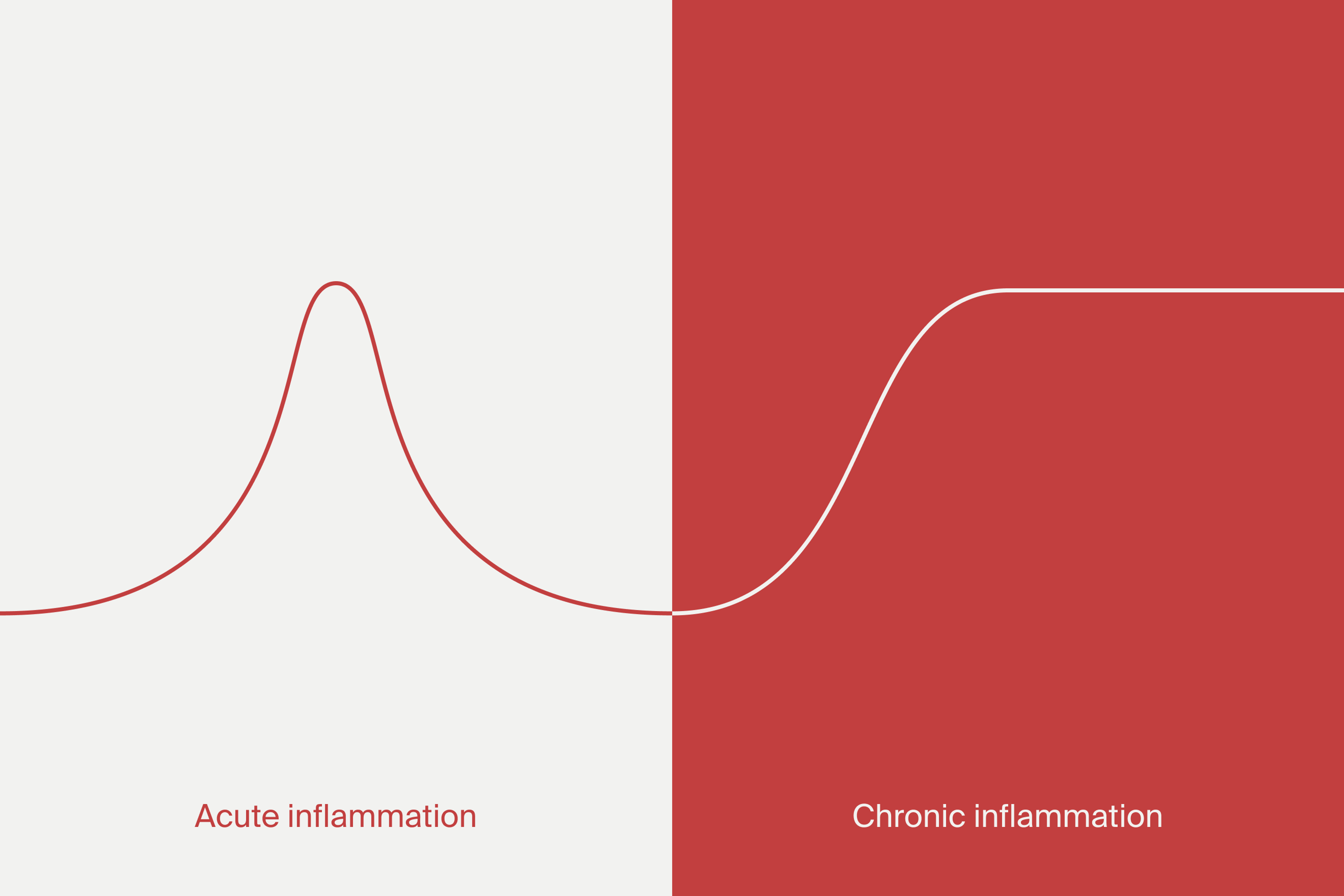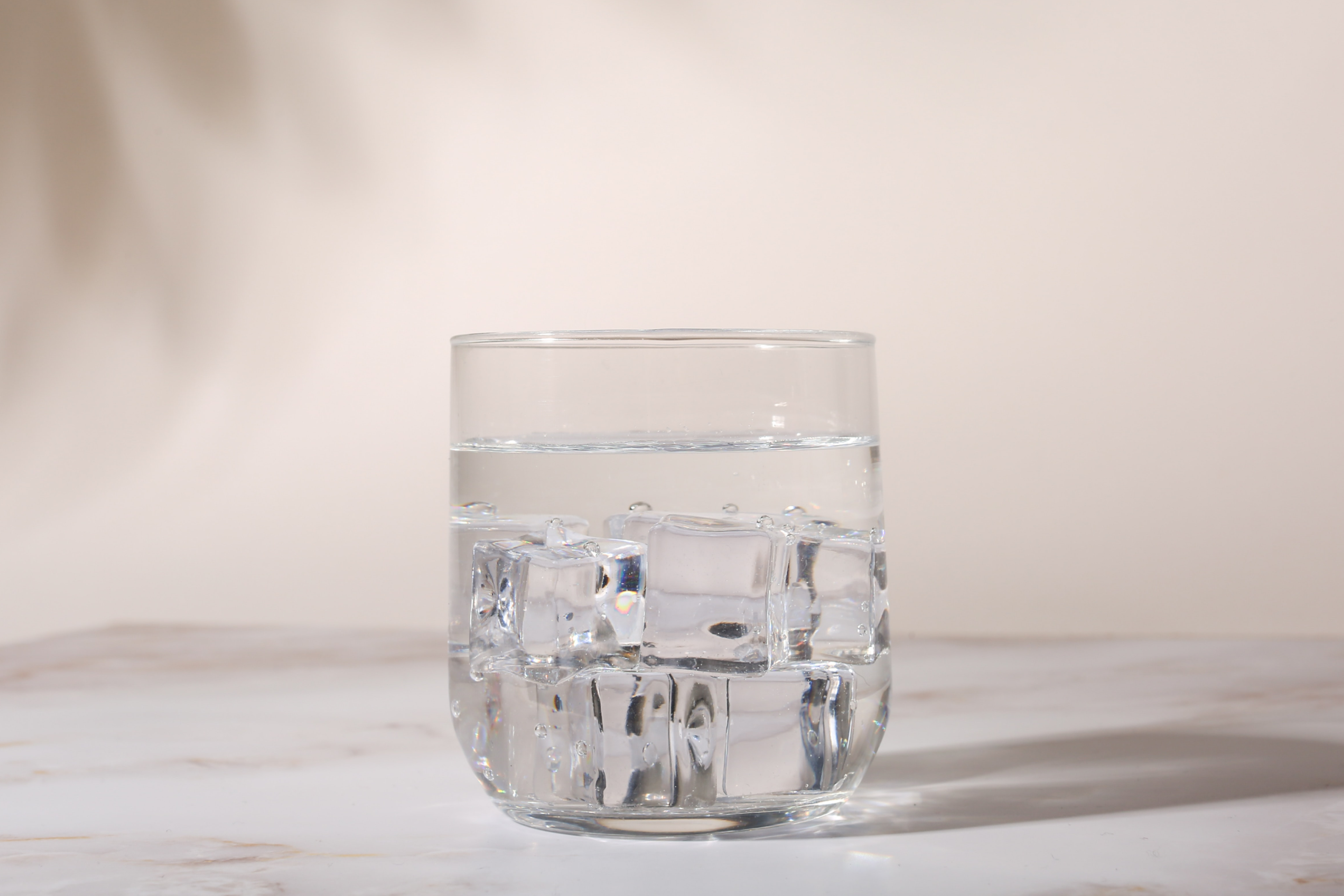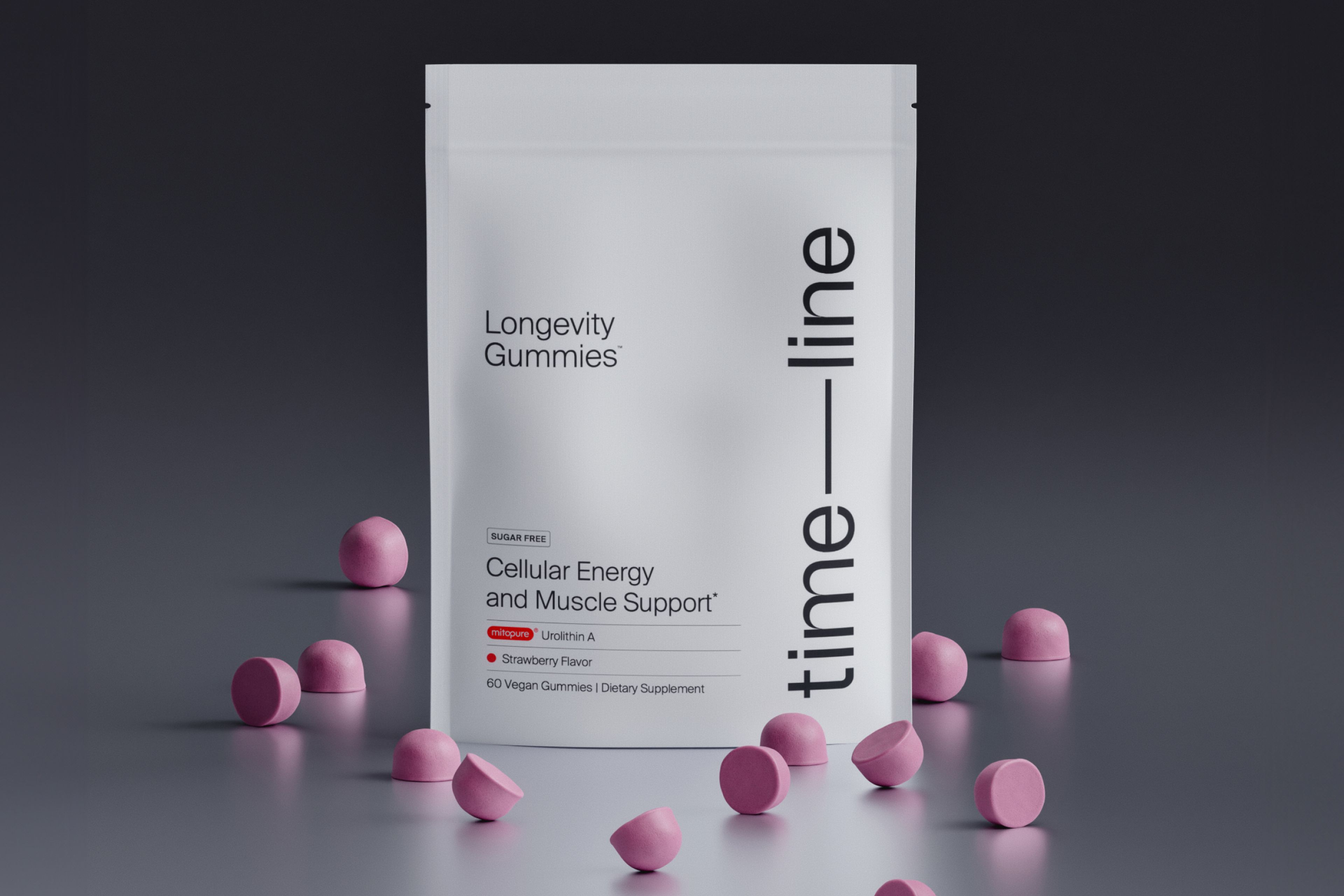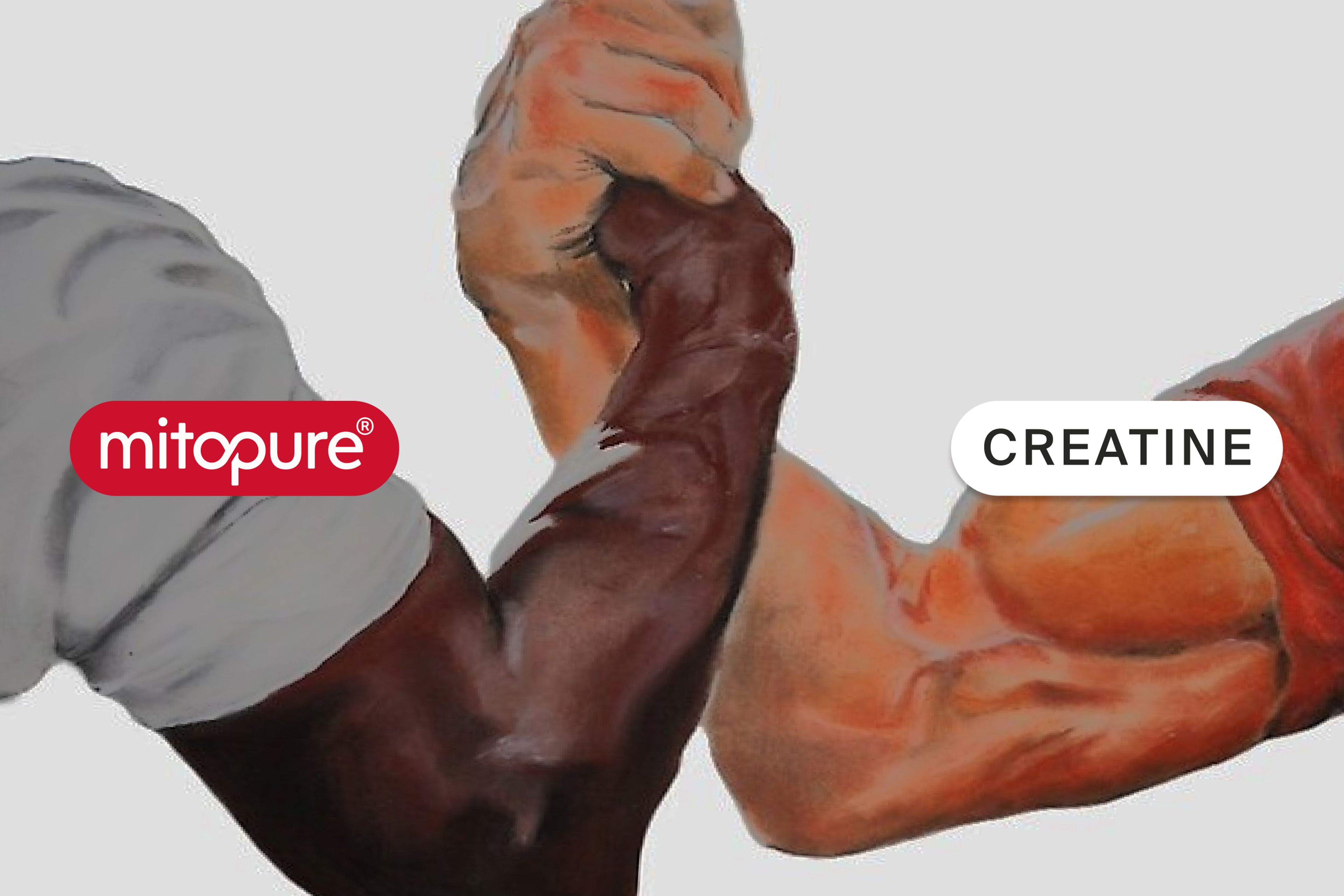5 Things You Can Do to Get Rid of Inflammation Quickly
Did you know inflammation increases the risk of chronic diseases? Learn how to reduce inflammation via diet, supplements, and a healthy lifestyle.

What to know
Chronic inflammation is slow, long-term inflammation that lasts for a long period of time.
Chronic inflammation is one of the hallmarks of aging, and it negatively affects health and can increase the risk of disease.
Practicing healthy diet and lifestyle habits can reduce inflammation and support overall wellness.
Disclaimer: The information in this article is for informational purposes only and should not be taken as medical advice. Always consult with your medical doctor for personalized medical advice.
Inflammation has many causes and can be acute or chronic in nature. With more research being revealed about the dangers of chronic inflammation, you may be wondering how you can transition to an anti-inflammatory lifestyle.
If you’re concerned you need to get rid of inflammation in your body and want to boost your immune system, there are diet and lifestyle changes that can help.
This article covers the top causes of inflammation, signs to look for, and 5 ways to reduce inflammation for whole-body health.
What is inflammation?
Inflammation is our body’s internal defense mechanism. Its main purpose is to protect us from injury and foreign invaders like bacteria and viruses, where white blood cells and proteins are activated to fight the offender.
The problem is that sometimes this inflammatory process is triggered when it shouldn't be - when there is not an illness or injury present. This type of inflammation you don’t want, and it is a cause of concern for many people.
Chronic inflammation can build over time due to our environment or daily habits and is the underlying cause of many diseases.[1] Inflammation can also accelerate the aging process.

Acute vs. chronic inflammation
Let’s take a look at the different types of inflammation that occur in the body - acute and chronic inflammation.
Acute inflammation is our body’s natural response to illness and injury, where proteins and white blood cells are triggered as a response to a sudden event like cutting your finger. In this case, it is a necessary part of the healing process.
Chronic inflammation is when your body activates a similar immune response as it would in an acute event, but there is no injury or infection present. The inability of acute inflammation to appropriately resolve can also play a role in the development of chronic inflammation.
Chronic inflammation occurs over time and can be associated with inflammatory conditions like lupus, arthritis, Crohn’s disease, or colitis. It also can increase the risk of chronic diseases like heart disease, diabetes, or Alzheimer’s.[2]

What causes inflammation in the body?
Inflammation can be caused by several factors such as:[4]
- Chronic infections - Epstein–Barr virus, hepatitis C, and other chronic infections can cause chronic inflammation and immune dysregulation.
- Environmental exposures - Exposure to toxins such as pollution or industrial chemicals can lead to chronic inflammation.
- Untreated acute inflammation - Unresolved inflammation from a past illness or injury contributes to a chronic inflammatory response.
Certain lifestyle factors can also contribute to inflammation in the body:
- Excess alcohol intake
- Obesity
- Poor diet
- Too much high-intensity exercise or “all-out” efforts
- Lack of exercise/physical activity
- Chronic stress
- Smoking
But how do you know if you have chronic inflammation? Are there any signs to look out for?
5 signs of inflammation
The signs of inflammation in the body are not always obvious, but the following symptoms may indicate your body is inflamed:[5]
- Body aches and muscle pain
- Fatigue
- Changes in mood like depression and anxiety
- GI issues, including acid reflux, diarrhea, and/or constipation
- Changes in weight
- Frequent infections
If you have these symptoms, always check in with your healthcare provider, as these symptoms may be signs of a serious illness.
Your doctor may look for inflammation using blood tests. The most commonly used marker for inflammation is C-reactive protein (CRP), which is a protein made by the liver. It is often elevated when inflammation is present.
Consequences of inflammation
Chronic inflammation can lead to health problems over time and a condition known as inflammaging.[6]
This condition is a state of long-term inflammation associated with aging and is a strong risk factor for multiple age-related chronic diseases. These diseases can lead to disability and weakness in older people and speed up the aging process.
Here are a few of the diseases inflammaging may contribute to:[7]
- Cardiovascular disease
- Chronic kidney disease
- Cancer
- Depression
- Dementia
- Osteoporosis
- Anemia
Lowering inflammation in your body is one of the best things you can do now for your future health.
5 things to do to get rid of inflammation
You can control and even reverse inflammation by following a healthy anti-inflammatory diet and lifestyle and taking anti-inflammatory supplements. Here is how to reduce inflammation in 5 simple ways.

1. Eat plenty of anti-inflammatory foods
Your diet choices can either increase or decrease inflammation in the body. Choose more of these anti-inflammatory foods regularly:
- Fatty fish: salmon, tuna, sardines
- Nuts and seeds: walnuts and flaxseeds
- Fruit: especially pomegranates, berries, and grapes
- Vegetables: Celery, green leafy veggies like spinach, kale, broccoli, and garlic
- Olive oil
- Spices: turmeric, ginger, and rosemary
Types of food that cause inflammation should be limited as much as possible:
- Sugar
- Red meat
- Trans fats
- Margarine
- Fried foods
- Processed foods
Following a Mediterranean-style diet rich in fruits, veggies, fish, nuts, seeds, and olive oil is a great place to start. Pomegranates, in particular, are one of the best sources of antioxidants to fight inflammation.

2. Stay active
Regular exercise supports many aspects of health - but is also one of the best practices for lowering chronic inflammation. And when it comes to exercise and inflammation - it appears the more consistent you are with it, the better.
And while all types of exercise are generally beneficial to reduce chronic inflammation, everyone is an individual and responds to exercise differently.
For example, one 2017 study found that only 20 minutes of moderate-intensity exercise was needed to lower inflammation.[8] Examples of moderate-intensity exercises include power walking, riding a bike, playing tennis, or doing yard work.
On the other hand, it appears that a single exercise session may actually worsen inflammation in the short term, which is more likely in the case of higher-intensity exercise or prolonged exercise. However, this inflammation typically decreases and actually improves with more consistent, regular exercise.
According to research, the effect of exercise on inflammation depends on the exercise intensity, duration, and individual characteristics of the person.[9] More research is needed to determine what characteristics may lead an individual to respond to certain types of exercise more favorably than others.
Overall, everyone responds to exercise a bit differently, but doing something active every day and taking rest when you need it is important for managing chronic inflammation.

3. Up your water intake
Are you drinking enough water throughout the day? Water is paramount to helping your body function at its best, and drinking more of it can help flush unwanted toxins out of the body.
Upping your water intake can also reduce inflammation by hydrating and cushioning your tissues, joints, and vital organs to reduce inflammatory symptoms. It also provides energy, aids in the digestion of our food, and supports the removal of waste products from the body.
Aim to drink at least eight 8-ounce cups of water per day.

4. Get your beauty rest
Sleep deprivation is associated with increased markers of inflammation in the body.[11] If you’re a busy person, sleep is probably one of the first things to go when you are short on time. But if you’re cutting back on sleep to get more done, you’re doing your body a disservice.
Make sleep more of a priority by creating a schedule that sets you up for success. For example, set a “wind down” alarm on your phone 60 minutes before bed at the same time every night.
At this time, you should put away all technology and start a bedtime routine such as light yoga, reading, or meditation to get you into sleep mode. This will make it much easier for you to fall asleep faster and stay on a regular schedule.

5. Manage stress
Research shows stress can activate inflammatory responses in the body. [12]While you can’t avoid all stress in life, you can choose how you respond to it.
Establishing a daily self-care practice such as meditation, breath work, yoga, or journaling can improve your mindset, clear your head, and reduce stress levels.
Final thoughts
You have the power to reduce inflammation and improve your health through simple diet, lifestyle, and supplement habits.
By following a healthy anti-inflammatory diet, getting regular exercise, sleep, managing stress, and staying hydrated, you’ll be giving yourself the best gift to support your well-being.
Authors

Writter
Dietitian-Nutritionist, and Health Content Writer

Reviewed by
Senior Manager of Nutrition Affairs
References
- ↑
Furman, D., Campisi, J., Verdin, E. et al. Chronic inflammation in the etiology of disease across the life span. Nat Med 25, 1822–1832 (2019). https://doi.org/10.1038/s41591-019-0675-0
- ↑
Pawelec G, Goldeck D, Derhovanessian E. Inflammation, ageing and chronic disease. Current Opinion in Immunology. 2014;29:23-28. doi:https://doi.org/10.1016/j.coi.2014.03.007
- ↑
Pawelec G, Goldeck D, Derhovanessian E. Inflammation, ageing and chronic disease. Current Opinion in Immunology. 2014;29:23-28. doi:https://doi.org/10.1016/j.coi.2014.03.007
- ↑
Furman, D., Campisi, J., Verdin, E. et al. Chronic inflammation in the etiology of disease across the life span. Nat Med 25, 1822–1832 (2019). https://doi.org/10.1038/s41591-019-0675-0
- ↑
Pahwa R, Goyal A, Jialal I. Chronic Inflammation. [Updated 2022 Aug 8]. In: StatPearls [Internet]. Treasure Island (FL): StatPearls Publishing; 2022 Jan-. Available from: https://www.ncbi.nlm.nih.gov/books/NBK493173/
- ↑
Franceschi C, Campisi J. Chronic inflammation (inflammaging) and its potential contribution to age-associated diseases. J Gerontol A Biol Sci Med Sci. 2014 Jun;69 Suppl 1:S4-9. doi: 10.1093/gerona/glu057. PMID: 24833586.
- ↑
Ferrucci L, Fabbri E. Inflammageing: chronic inflammation in ageing, cardiovascular disease, and frailty. Nat Rev Cardiol. 2018 Sep;15(9):505-522. doi: 10.1038/s41569-018-0064-2. PMID: 30065258; PMCID: PMC6146930.
- ↑
- Cerqueira É, Marinho DA, Neiva HP, Lourenço O. Inflammatory effects of high and moderate intensity exercise-A systematic review. Frontiers. https://www.frontiersin.org/articles/10.3389/fphys.2019.01550/full. Published December 9, 2019. Accessed February 23, 2023.
- Dimitrov S, Hulteng E, Hong S. Inflammation and exercise: Inhibition of monocytic intracellular TNF production by acute exercise via β2-adrenergic activation. Brain Behav Immun. 2017 Mar;61:60-68. doi: 10.1016/j.bbi.2016.12.017. Epub 2016 Dec 21. PMID: 28011264; PMCID: PMC6555138.
- ↑
Khazaei M. Chronic Low-grade Inflammation after Exercise: Controversies. Iran J Basic Med Sci. 2012 Sep;15(5):1008-9. PMID: 23495361; PMCID: PMC3586919.
- ↑
- Foroughinia F, Movahed Nouri B, Kojuri J, Ostovan MA. Impact of Omega-3
Supplementation on High Sensitive C-Reactive Protein Level and 30-Day Major Adverse Cardiac Events After the Implementation of Coronary Stent in Patients with Chronic Kidney Disease: A Randomized Clinical Study. Adv Pharm Bull. 2018 Aug;8(3):471-478. doi: 10.15171/apb.2018.055. Epub 2018 Aug 29. PMID: 30276144; PMCID: PMC6156476.
- ↑
Mullington JM, Simpson NS, Meier-Ewert HK, Haack M. Sleep loss and inflammation. Best Pract Res Clin Endocrinol Metab. 2010 Oct;24(5):775-84. doi: 10.1016/j.beem.2010.08.014. PMID: 21112025; PMCID: PMC3548567.
- ↑
Liu YZ, Wang YX, Jiang CL. Inflammation: The Common Pathway of Stress-Related Diseases. Front Hum Neurosci. 2017 Jun 20;11:316. doi: 10.3389/fnhum.2017.00316. PMID: 28676747; PMCID: PMC5476783.
Disclaimer
The information in this article is for informational purposes only and should not be taken as medical advice. Always consult with your medical doctor for personalized medical advice.

•
Nutrition•
Your Favorite Longevity Ingredient, Now in Gummy Form!

•
Nutrition•







